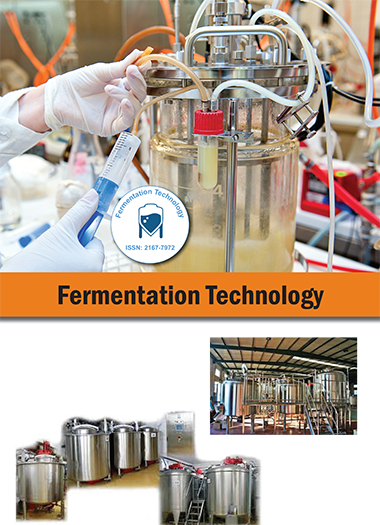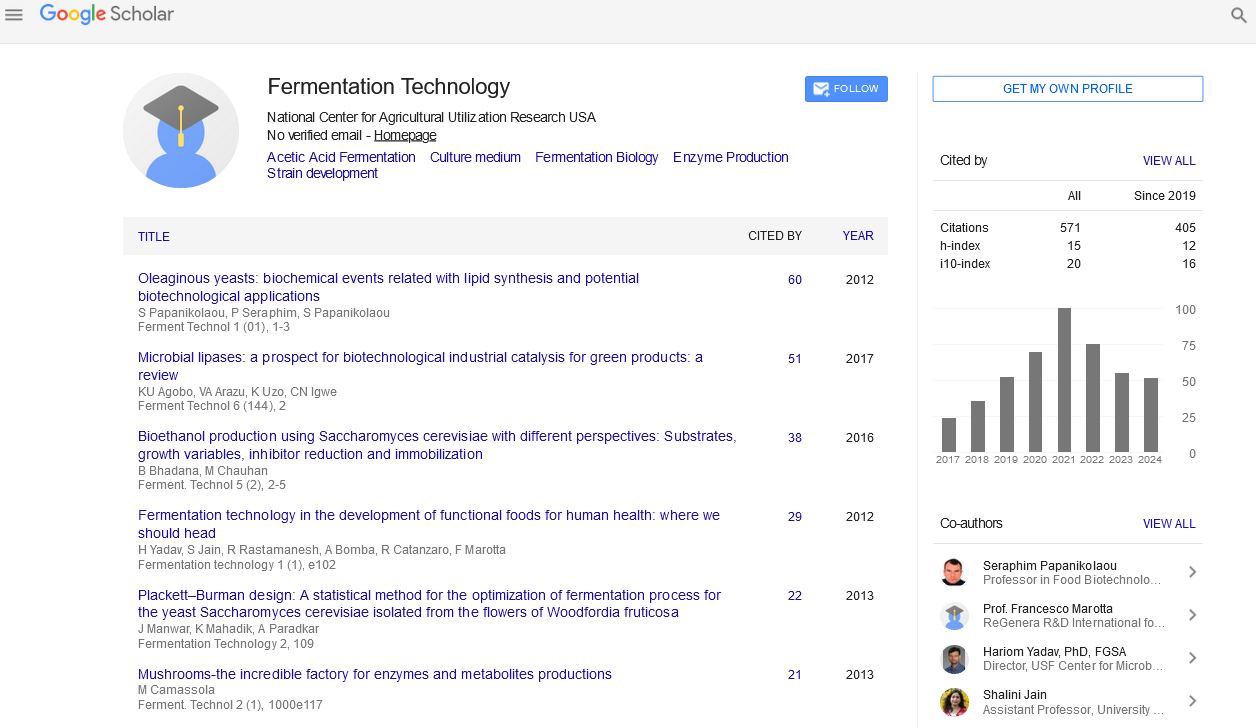Indexed In
- Open J Gate
- Genamics JournalSeek
- Access to Global Online Research in Agriculture (AGORA)
- RefSeek
- Hamdard University
- EBSCO A-Z
- OCLC- WorldCat
- Publons
Useful Links
Share This Page
Journal Flyer

Open Access Journals
- Agri and Aquaculture
- Biochemistry
- Bioinformatics & Systems Biology
- Business & Management
- Chemistry
- Clinical Sciences
- Engineering
- Food & Nutrition
- General Science
- Genetics & Molecular Biology
- Immunology & Microbiology
- Medical Sciences
- Neuroscience & Psychology
- Nursing & Health Care
- Pharmaceutical Sciences
Commentary - (2024) Volume 13, Issue 1
Public Health Impact: Fermented Milk and Cardiovascular Health
Abu Ikram*Received: 26-Feb-2024, Manuscript No. FMT-24-25555; Editor assigned: 28-Feb-2024, Pre QC No. FMT-24-25555 (PQ); Reviewed: 13-Mar-2024, QC No. FMT-24-25555; Revised: 20-Mar-2024, Manuscript No. FMT-24-25555 (R); Published: 27-Mar-2024, DOI: 10.4172/2167-7972.24.13.171
Description
In recent years, there has been a notable increase in interest in the health-promoting properties of fermented foods, particularly fermented milk products. Fermentation is a standard food preservation method that not only improves the flavor and texture of foods but also improves them with bioactive compounds. Among these compounds, Angiotensin I Converting Enzyme Inhibitory (ACE-I) peptides derived from fermented milk have been shown to be potential factors for hypertension management. This commentary explores the production of ACE-I peptides during milk fermentation and their potential role in reducing hypertension.
Fermentation process and ACE-I peptide production
Fermented milk is a potential source of various biologically active peptides with specific health benefits. During fermentation, lactic acid bacteria and probiotic strains metabolize lactose and produce enzymes that hydrolyze milk proteins into peptides. Caseins and whey proteins are major sources of these peptides, and their enzymatic hydrolysis during fermentation leads to the release of bioactive compounds, including ACE-I inhibitors. The presence of these peptides is reported in various fermented milk products such as yoghurt, cheese, sour milk, etc., which are also available as industrial products.
Mechanism of action and hypertension reduction
ACE-I peptides carry out their antihypertensive effects by checking the angiotensin-converting enzyme, thereby modulating the Renin-Angiotensin-Aldosterone System (RAAS). By blocking the conversion of angiotensin I to angiotensin II, ACE-I peptides help to prevent vasoconstriction and promote vasodilation, ultimately lowering blood pressure levels. Furthermore, these peptides may also possess antioxidant and anti-inflammatory properties, contributing to their overall cardiovascular benefits.
Regulatory and market perspectives
The analysis of study findings into economically sustainable products requires observance to regulatory guidelines and standards. Regulatory bodies play a critical role in evaluating the safety and efficacy of functional foods containing bioactive peptides, including ACE-I inhibitors. Furthermore, strategies for scaling up production processes and ensuring product consistency are essential considerations for bringing fermented milk products improved with ACE-I peptides.
Public health suggestion and dietary recommendations
Including fermented milk products into the diet may offer a convenient and easy approach to hypertension management and cardiovascular health promotion. Public health initiatives aimed at raising awareness of the benefits of fermented foods and encouraging their consumption could have significant implications for population-wide blood pressure control. Dietary guidelines indicating the inclusion of fermented dairy products as part of a balanced diet may help to reduce the burden of hypertension and associated cardiovascular complications.
Clinical evidence and future directions
Several studies have demonstrated the efficacy of fermented milk-derived ACE-I peptides in reducing blood pressure in hypertensive individuals and animal models. However, further research is needed to explain optimal fermentation conditions for maximizing ACE-I peptide production, as well as to explore their long-term effects on cardiovascular health and potential interactions with other dietary components. Additionally, the development of functional foods and nutraceuticals enriched with ACE-I peptides holds potential for preventive healthcare strategies targeting hypertension and related cardiovascular diseases.
In conclusion, fermented milk represents a rich source of biologically active peptides, including ACE-I inhibitors, which hold potential for hypertension management and cardiovascular health promotion. By controlling the bioactive potential of fermented milk products, we can explore innovative dietary interventions for facing the global burden of hypertension and associated cardiovascular diseases. Continued research, regulatory support, and public health initiatives are essential for realizing the full therapeutic potential of ACE-I peptides in fermented milk products.
Citation: Ikram A (2024) Public Health Impact: Fermented Milk and Cardiovascular Health. Ferment Technol. 13:171.
Copyright: © 2024 Ikram A. This is an open-access article distributed under the terms of the Creative Commons Attribution License, which permits unrestricted use, distribution, and reproduction in any medium, provided the original author and source are credited.

